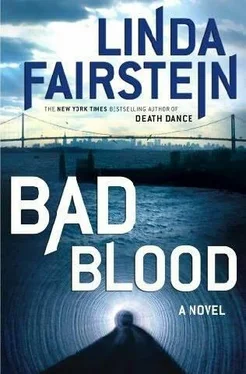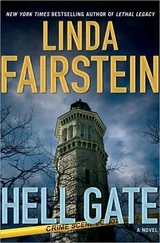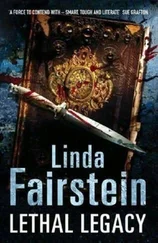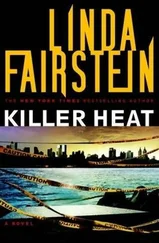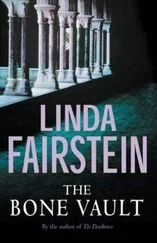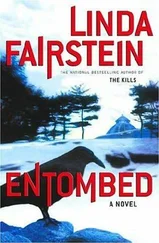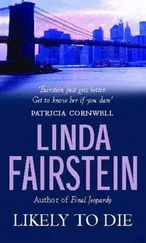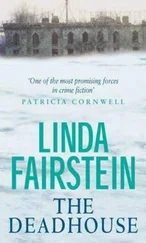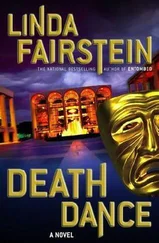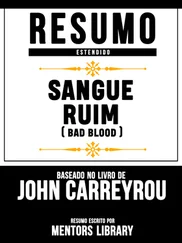The cameraman found the public officials setting up on a platform in the middle of the street, which had been blocked off by fire trucks.
“Which tunnel?”
Manhattan sat above a maze of underground connectors. Roadways stretched beneath the Hudson River across to New Jersey in the Holland and Lincoln tunnels; Brooklyn was linked by the Battery Tunnel; Long Island by the Queens Midtown Tunnel; and more than fourteen underwater tubes comprised the network of subway tunnels that were the vital infrastructure of New York City.
“Right there. Thirtieth Street,” Mercer said, hushing me with a finger over his lips.
I didn’t recognize the mayor until Mercer pointed him out to me. He was dressed in a yellow slicker, with a bright green plastic hard hat, and heavy rubber rain boots that covered his trousers up to his knees. The police commissioner mounted the podium next to the mayor, and the fire commissioner, clearly unhappy to be second banana, was grim-faced as he stepped to the rear.
“Good evening, my fellow New Yorkers. The commissioner and I are here together at the mouth of Water Tunnel Number Three. As most of you know, almost two hours ago, shortly before nine o’clock this evening, an explosion was reported inside the underground entrance at this site, a place unknown to many of you, even though it will play an essential part in every one of your lives.
“There is absolutely no cause for panic or alarm,” the mayor said, giving what had become the traditional post-9/11 exhortation for calm and equanimity in the face of the unknown.
Five minutes of reassurance were followed by introductions of all the parties who were playing a role in this crisis. The mayor was clearly stalling for time, for someone to give him a better understanding of the potential danger to the city.
“As of now, there is no reason to believe this event is the result of a terrorist act. The brave men who have worked underground since this project began its development almost forty years ago-in 1969-have faced death in ways most of us have never contemplated. This subterranean world that provides New York with all the water it uses daily has been created out of sheer bedrock by dynamite. We expect that tonight’s blast and the resultant damage will prove to be simply a terrible accident, not an intentional act-not part of a scheme intended to cripple our city.
“But,” the mayor went on, summoning the man he’d appointed to lead the NYPD to step forward beside him, “but I’d like Commissioner Scully to tell you what precautions we’ve taken to keep you and your families safe.”
“It’s the damn buts I hate so much,” Mercer said. “Give us the bad news.”
The commissioner was a head taller than the mayor. He removed his hard hat and handed it to an aide, then leaned over to speak into the mike. I had known Keith Scully when he had been chief of detectives more than five years ago, and I had watched his hair whiten and fine lines become etched in his brow since the time of his appointment two years earlier.
“We have been keenly aware of the vulnerability of our tunnel systems in this city since the tragedies of September eleventh. Our counterterrorism plans have included increased manpower at all entrances and exits, upgraded with video monitors and intercoms,” Scully began, then referenced additional sophisticated techniques adapted and improved after Moscow’s subway explosions in 2004, the Madrid commuter train bombings that same year, and London’s 2005 coordinated Tube attacks.
“One of the repeated threats we’ve picked up from international surveillance and through the Department of Homeland Security,” Scully went on, wiping sweat from both sides of his face, “has been to the aging system providing water to the five boroughs of this city. The original structures-Water Tunnels Number One and Two-have been in service for more than a century. They are”-he paused for emphasis-“they are extremely antiquated and terribly fragile.”
Scully turned his head to the mayor, who gave him the nod he was looking for to be the bearer of bad news. “If one of the old tunnels is breached, if one is damaged in any substantial way, then the collapse of the system will be catastrophic.”
We could hear reporters calling out to Scully from behind the wooden barricade, asking what he meant. Clearly, he was not ready to take questions from them.
“In cooperation with the Department of Environmental Protection, we have dispatched teams to every site throughout the five boroughs of the city in this monumental construction project. We are urging you at this time, however, to conserve your water usage in every way possible.” Scully went on to list how households and businesses could do that, encouraging people to stock up on bottled water as well.
The reporters were rowdy now, trying to get an explanation that would make sense to their viewers.
The mayor elbowed Commissioner Scully aside and regained the mike, speaking in his folksy way, as if his more relaxed manner would do anything to downplay the possible dangers.
“If you ladies and gents don’t remember your history, then perhaps you may not understand that New York is a great city-but it simply doesn’t have the one element we all need to survive. We can live without a lot of things, but water is not one of them. And on this island, we don’t have any source of fresh water. None at all.”
“Better learn to drink your Scotch neat,” Mercer said, leaning back and sipping his vodka. “People open their faucets every morning and never even think about where the water comes from. That’s the goddamn but about it-but, if the old tunnel system that is literally our lifeline blows up or implodes anytime soon, the NYPD has a one-word plan for the island of Manhattan.”
“And what’s that?” I asked him.
“Evacuate.”
“This is Teddy O’Malley,” Mike said, introducing Mercer and me to the man who followed him into my apartment a few minutes after midnight. “He’s one of the workers from the blast site. The commish teamed each detective up with one of them so we can learn our way around the tunnel system pronto.”
“Pleased to meet you,” Teddy said, standing awkwardly to the side of the Oriental rug in the hallway. “Sorry to be bringing in so much soot with me.”
“It’s not a problem. Make yourselves comfortable.” I led them into the dining room so that Mike could put the two large pizza boxes down on the table. “You must be starving.”
Teddy’s T-shirt, jeans, and steel-tipped work boots were caked with mud. His freckled skin was smudged with dirt on both his face and well-muscled arms, but his curly orange hair must have been shielded by a hard hat while he had been in the vicinity of the explosion.
“Teddy’s gonna be my guide dog for the week, starting tonight. We’re on our way to the Bronx now, so I figured we’d stop here for a snack. Can you live without me in court tomorrow?” Mike asked me.
“Absolutely. This is a hell of a lot more serious than the Quillian trial. I expect half my jurors will go into hibernation over these news accounts. You okay, Teddy?”
“I’m fine, ma’am. Wasn’t there when it happened. I’m a union rep, so I came back into town to make sure the cops had what they needed from us. Shooed me right out of there, they did, and assigned me to this character,” he said, pointing a finger at Mike. “He’s trying to make a copper out of me already.”
“May the force be with you, Teddy,” Mike said, turning to Mercer. “She hasn’t packed her bags yet, Mercer? How’d you keep her from skipping town? Any minute now I’d expect Coop to step out of those leggings and-let’s see-whose monogram is on the cuffs of that fine-looking shirt? Some jerk she kicked out of bed must have left that behind. I figured by this time she’d have traded in her civvies for the hazmat suit she keeps under her bed and headed for the border.”
Читать дальше
